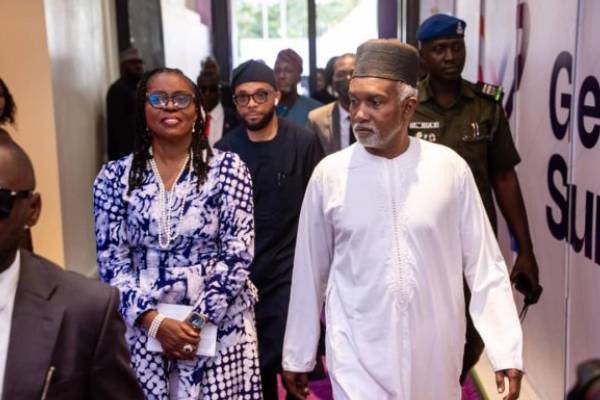Minister of Foreign Affairs, Ambassador Yusuf Maitama Tuggar, has called on African governments, development partners, and the private sector to prioritise gender and youth inclusion in economic diplomacy, warning that the continent’s transformation will remain fragile without equitable growth.
Speaking at the 2025 Gender and Inclusion Summit in Abuja, Tuggar said Africa, with its projected population of 2.5 billion by 2050 and a current GDP of $2.8 trillion, has the potential to drive global growth but risks stagnation if inclusivity is ignored.
Citing a Council on Foreign Relations report, the minister said Nigeria’s GDP could rise by $229 billion by 2025 if women participated in the economy at the same rate as men. “This is not just a social issue; it is an economic imperative,” he stressed.
Tuggar highlighted persistent gender gaps, noting that 7.6 million Nigerian girls are still out of school, nearly half of them in the North-West and North-East. He added that women account for 70 percent of Africa’s informal workforce yet remain largely excluded from formal trade, while they occupy just 4.2 percent of seats in Nigeria’s National Assembly — far below the continental average of 27.3 percent.
He said Nigeria has recalibrated its foreign policy under President Bola Tinubu’s “4-D Diplomacy Agenda,” which focuses on Development, Demography, Diaspora, and Democracy, to make inclusivity a core priority. Initiatives such as the Regional Partnership for Democracy and resolutions from the West Africa Economic Summit are aimed at dismantling barriers to women’s access to finance, markets, and cross-border opportunities.
Tuggar cautioned that major trade initiatives like the African Continental Free Trade Area (AfCFTA) and the Pan-African Payment and Settlement System (PAPSS) could deepen exclusion if not deliberately structured to include women and youth.
He commended Nigerian banks — including UBA, Access, GTCO, First Bank, and Zenith Bank — for their role in advancing cross-border banking and digital integration, while urging faster progress in women’s representation in leadership roles.
“Women must not just participate; they must lead,” Tuggar said.





